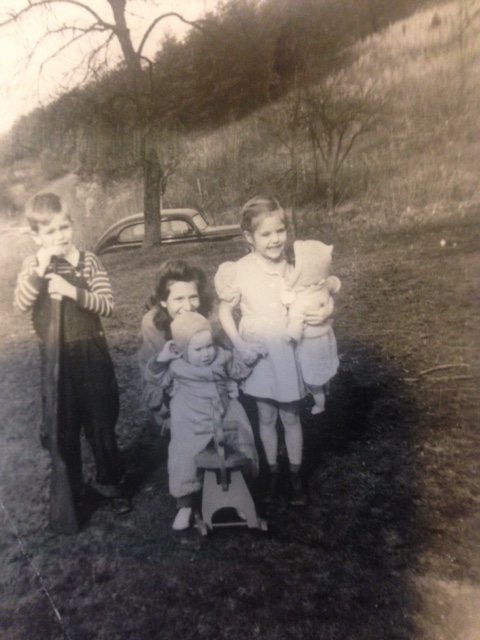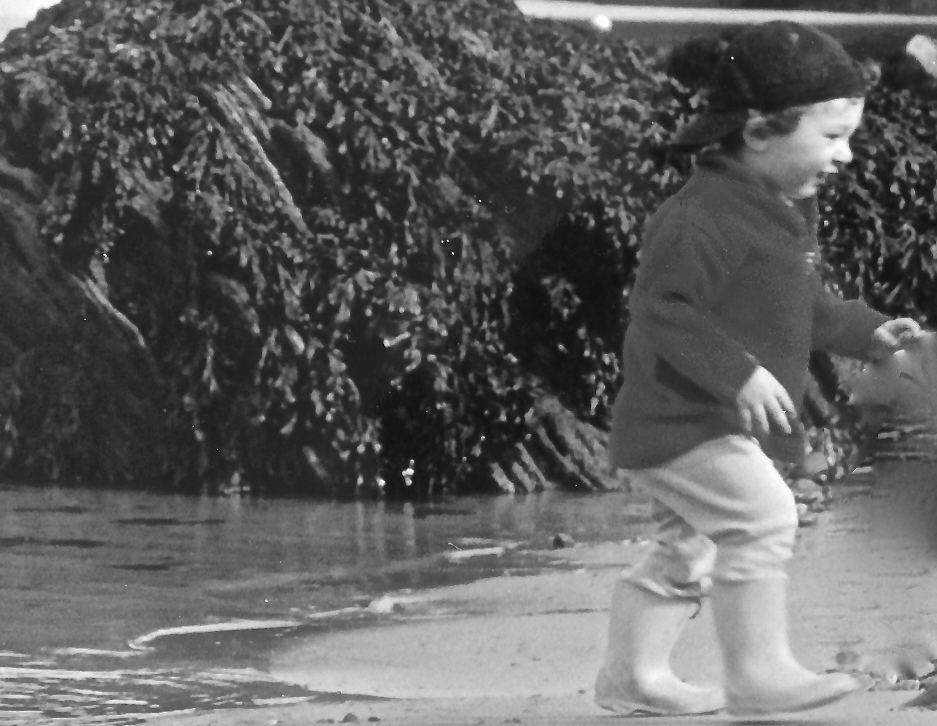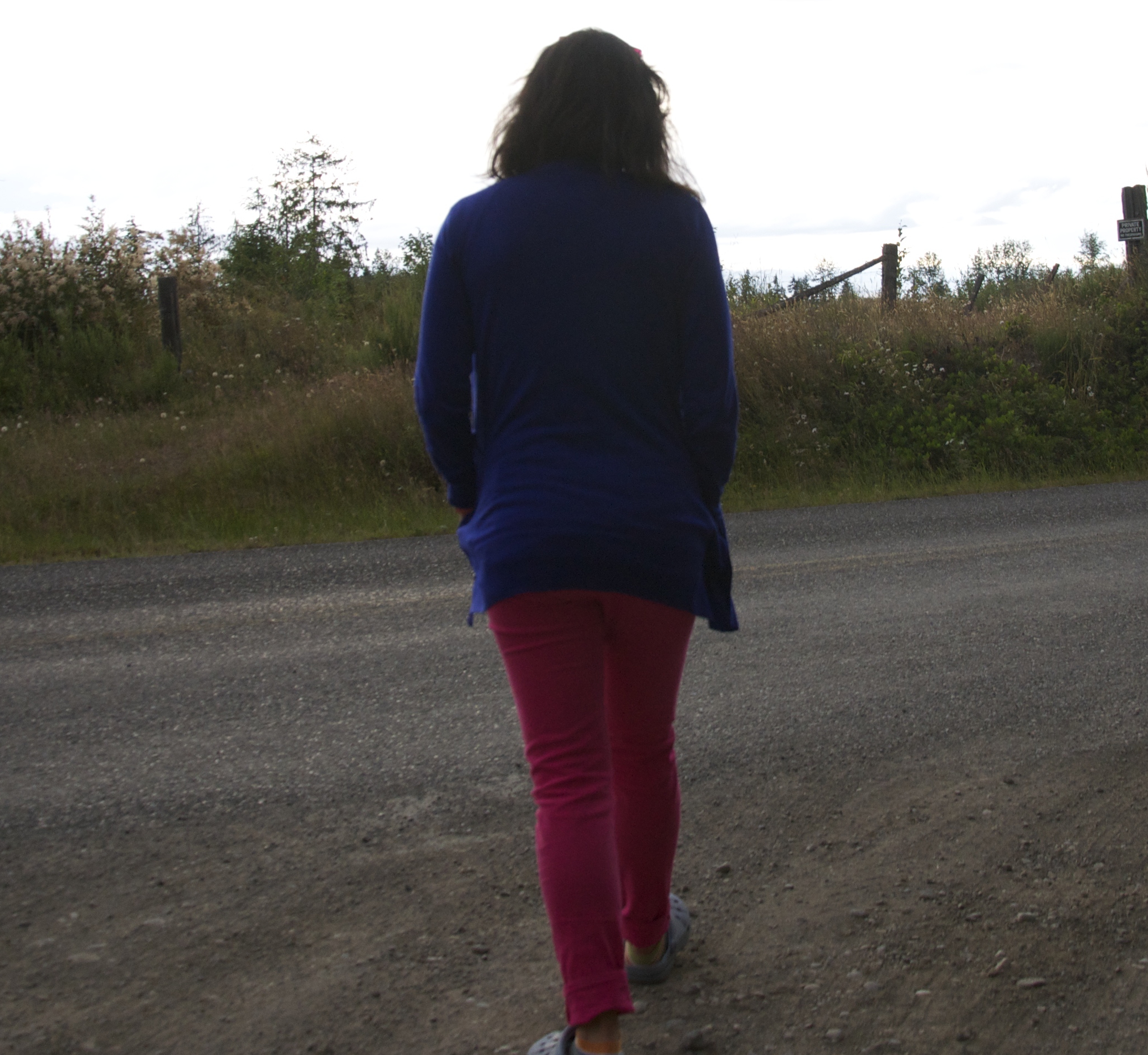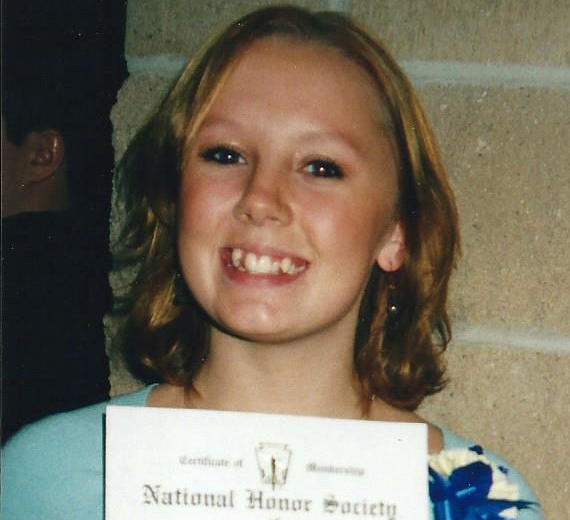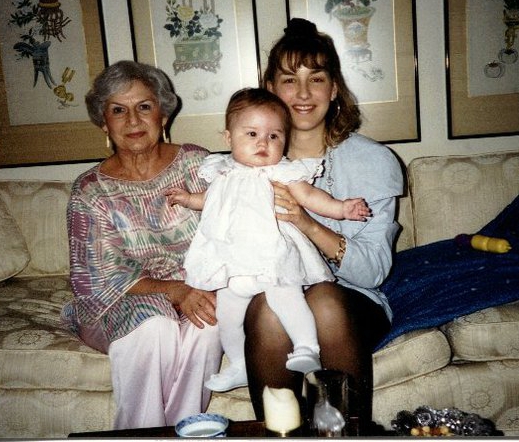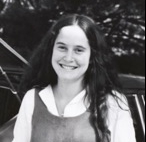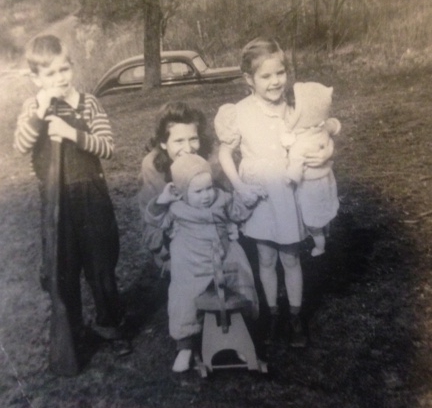When Momma and Daddy eloped in 1938, The Great Depression still lingered throughout the coal fields and mill towns throughout much of Appalachia. Daddy went from writing for a hill-town newspaper to selling vacuum cleaners. Within six years we three kids were born. During that time, we lived with grandparents, and then on a farm two miles up a muddy road while Daddy sustained us with work in the Hampton Roads Virginia Naval Yard until WWII ended. In time, my parents found a rental in Ceredo, West Virginia. Daddy again started selling sweepers.
By 1948, older brother Jon was ten, younger Pete was four, and I was seven. Our small house in Ceredo sat back up a gravel road from a slaughterhouse situated above big ole Twelve Pole Creek.
Momma came from a family of fourteen, and had quit school after the tenth grade to buy shoes for the younger kids. She didn’t have time for lying, cheating, and cussing and had little patience for making up songs and poems.
Daddy—on the other hand—had a baritone voice smooth as maple syrup. He taught us to sing along with him. In fact, a lot of Daddy’s family loved nothing better than drinking and singing together and telling one big tale right after the other—each coloring the story up a bit more than the last time it was told. As a young man, Daddy and his brothers and sisters performed vaudeville acts of singing, dancing and joke-telling on a stage in nearby coal towns. Momma sang along on only two songs that I knew about: the alto harmony on “Near the Cross” and the melody on “Silent Night.” In Daddy’s family, there were the drinkers and there were the non-drinkers. The drinkers never drank around the non-drinkers, and the non-drinkers never showed up when the drinkers planned to party. Momma was a non-drinker, but she was married to a drinker; so, she cooked big dinners to sober up the gang before they went home.
We were poor but not dirt poor. There were always potatoes of all kinds to cook and creasy greens to pick for a side dish, cobbler and fried chicken for Sunday, and huckleberries and beechnuts for pies and cakes. We kids gathered up kindling for the stove, and kept it burning with coal fallen from the train cars. We gathered bottles and returned them for the deposit and picked the berries and nuts from the hillsides. After a while, Mama tied up her rich locks of red hair and took on being a waitress six days a week to give us additional income.
Jon and I often walked the four miles to and from school. Sometimes, we’d go to a friend’s farm until Daddy picked us up. Or we went gallivanting into the wilds or looked along the creek for tadpoles to put in pickle jars with water.
Tight in white asbestos shingles, our little bungalow sat frosty in the December sun. Pastel meadow flowers glinted from the icy barbs atop the eight-foot high steel barrier that separated our house from an air reduction plant that was as big as a softball field.
I was in the second grade, and not so good in arithmetic and spelling. My penmanship left a lot to be desired, and I didn’t have any shiny red boots like the town girl who was my desk mate. I never let on like it mattered. She had a big, white house right on Main Street, but she was afraid to play dodgeball at recess.
I liked the way teachers always dressed up with lipstick and ties and heels that went “click-duh-click” in the hallway so that you could hear that they were bound for a duty where they would be asked questions, and where they would answer in that very clear voice, so that everyone, even on the back row, could hear and understand. That year, my teacher had black hair and was tall. She assigned some nice homework: write a Christmas poem about the holiday at your home. She read us some with rhymes to give ideas.
That day when we got home from school, Jon grilled himself and me cheddar cheese on light bread in the cast iron skillet. I had stoked up the coals while he sliced cheese.
“You got homework?” Jon asked. We liked to get that over with before Daddy brought Pete home from daycare, when we’d all together get supper and the table ready. Momma deserved a hot meal when she came in from the bus. She didn’t get off for three more hours.
I was dipping glasses of water from the silver colored bucket by the sink. “Yeah,” I answered, suddenly thinking that when I went out to the back porch to chip some ice for the water, I should study the shape of the chips to see if they were like snowflakes or more like clumps of snow on trees.
“What?” Jon asked, noticing me lost in thought. He slid the spatula under the toasty cheese sandwiches.
Warm as beds of cheddar cheese sandwiches right out of the iron skillet....” I could end the poem with that, like we were snuggling down on Christmas Eve waiting for Santa.
“What’s wrong with you?” Jon said. “Did you get the ice for that water?”
“Hold your horses!” I told him as I dashed out the screen door to the porch. I sat the glasses down on the flat wooden porch rail and stood on the big rock to open the top door of the ice box. The block of ice had just been delivered by the iceman truck yesterday, so only one edge of its domino shape was missing. The pick lay by one end. The pick was surely something to respect. I grasped the red handle and steadied myself on the rock. Sometimes the rock teetered.
When I did so, the chip fell off, uneven looking as a piece of coal. What was neat was that the grains of ice scattered like snow in the wind. I thought of the cold and the ice. I had my beginning in my head, just like that. I’d have to chip another chunk and get back inside before I forgot it. I kept whispering, December is cold as a block of ice, but there’s one thing about it that’s really nice. Rhyme was easy as chipping ice.
Jon had eaten his sandwich by the time I got back in, and he was ready to go down the road to pass ball with his friend.
“Slowpoke!” he yelled, slamming out the front door. I didn’t answer. I needed quiet. I went to our green and white chrome table. I should find a place in the poem for it. We were proud to have it, all shiny and new. Green and white was Christmas, too. Our Christmas tree, green and white as a kitchen table...Uh-Find you a present from it if you are able. Yeah. I took a quick mouthful of now cool grilled cheese and bread and ran into the living room for my bookbag. A swig of water and another bite and I was laying out my note paper on the green and white enamel and writing the lines I had thought of before.
Looking at the water glass reminded me of the well out back and how important was the rain. When it rained hard, I pretended to be on a horse galloping through a storm. Horses galloping through a storm, Pulling a sleigh with blankets to keep you warm. That might work, but it wasn’t really about my house. We didn’t have a horse or a sleigh.
Actually, we used the garbage lid to slide down the snow. Riding a garbage lid down the snow, Faster than galloping horses, you know. Maybe. I put the period on the lines and heard the car coming to to the front of the house. That would be Daddy with Pete.
The quiet time was over, and I knew I still wasn’t nearly finished. Daddy’s coming got me to pondering on all the neat things we did with him, how he talked with furry and feathered critters and convinced the loopy-eared dogs and the uppity cats that they liked each other, even when the licorice and vanilla longhaired came dragging in another litter, one kit at a time dangling from her mouth.
I could hear Pete belt through the front door and then his shoes clacking on the linoleum as he made a bee-line for the kitchen. I was writing likorish and longhaird litters of kittens when he came up behind me and bumped my chair, laughing as if that was funny.
“Where’s my sandwich?” he said, looking around at the evidence and checking out the skillet over on the stove.
“Get yourself a bowl of Cornflakes,” I said, trying to think that mittens would rhyme but my head couldn’t think up a line. Pete had spoiled how easy the poem was coming.
“I want a cheese sandwich like you got,” Pete demanded. “Where’s Jon?”
“How should I know? Pick up your jacket. Get the cheese and take out the bread.” I would have to cut it and grill it. Daddy might want one, too. Might as well make two. He handed me the round ball of cheese. I was unwrapping it. Glass balls as round as fists warmed in mittens. I kept repeating that in my mind as I stoked the fire, melted a hunk of butter, and slapped the cut cheese between the four pieces of bread and put them in the skillet. I was just turning to go back to the table when Daddy walked in.
By the time I got them fed and asked them could I please go be alone so I could do my homework, Daddy went asking me what it was about and I told him.
“You be back in here in an hour, you hear?” Pete went out on the porch to play with the cats. I grabbed my coat and ran out before anyone could stop me. I could finish in an hour and then write out a clean copy after Momma came home. I had two big rocks in the weeds to sit and write on.
When the hour was up I had to go help with getting the supper on the table.
Pete was setting the table and I took the mac and cheese casserole out of the ice box where Momma had put it after she made it before she went to work. Daddy had the fire blazing, and so the oven waved a hot whoosh up into my face as I opened its door. While it cooked, I would open up a can of spinach.
“I’m going to liven this up a bit,” Daddy said, stirring up two strips of bacon. While he finished the bacon, which I knew he would chop up and add to the spinach along with some of the grease and a hefty dab of white vinegar, he started to sing a song he made up for us called, “Way Down Yonder in the Yank-ed-ty Yank” that came with the lines, “The bullfrog jumped from bank to bank, He wrapped his tail around a stump, and then he swore he would not jump.”
When I came back to my classroom the next day, I could sense right away that I had not understood the assignment. The other kids had penned four to six lines. Some of them rhymed and some didn’t. I had two pages of rhyme. All of the poems she read to us rhymed. She told us to put our Christmas into our poem.
After we all read our poems aloud, Teacher called me to her desk. “My dear, this is a very long poem,” she said, looking me right in the eye. She continued to look and I moved from one foot to the other.
“Yes, Ma’am, I guess it is.” I felt like I should say more. “Is it too long?”
Teacher sat back a bit, and looking down at my poem, she added, “This poem was supposed to be your own work.” She looked back at me in the eyes like she did.
“I know,” I said, looking over my shoulder and seeing that the rest of the class sat still--as if I had done something to get in trouble.
“Who helped you write it?” she asked. My mouth fell open and I could not speak.
It was like I was standing before a policeman and might go to jail if I said the wrong thing. I batted my eyes and hope I wasn’t going to start crying.
“Let me ask you again,” Teacher started, “Judy, did you write this poem all by yourself, without any help?”
I took a breath. “Every last...word, every one of them…is mine,” I answered very slowly.
“Where did you learn to write poems like this?” she asked.
I brightened up a bit. She was not going to send me to jail. She just wanted to know. “At home. Daddy was going to be a writer but The Depression came and he had to go work in the rubber plant. He writes stories and songs with us every day while he is cooking or chopping wood. We always make up stuff, ever since I was a little girl.”
When I turned to the class again and then back to Teacher, she had stood up. She still held my poem in her hand. She was smiling. “I believe you.” Her words made me feel as if someone gave me a double chocolate ice cream cone and a wrinkly puppy all at the same time. “Would you let me keep your poem as a souvenir?”
Of course, I said, feeling warm all over. Then she actually got somebody from the sixth grade to come in and watch her class while she took me around into every room of the eight grades of the school.
I could hardly wait to get home to tell everyone about it at the supper table.
Judy Light Ayyildiz is a senior citizen in the Blue Ridge and is still going strong with a gusto for life. She is a graduate of Hollins University Writing Program and the Marshall University Teachers College. She has years of experience in classrooms and on stage as performer, director, and conductor. Internationally published and translated, she is the author of 11 books in 5 genres, including Mud River, Nothing but Time, Forty Thorns, Intervals-Appalachia to Istanbul. She was an editor at Artemis for 13 years and a Blue Ridge Writers Conference founder. Her works has also appeared in New York Quarterly, Mickle Street Review, The New Renaissance, Sow’s Ear, Hawaii Pacific Review, Black Water Review, Northeast Journal, among others. Judy is currently completing a memoir titled The West Virginia Diet.
